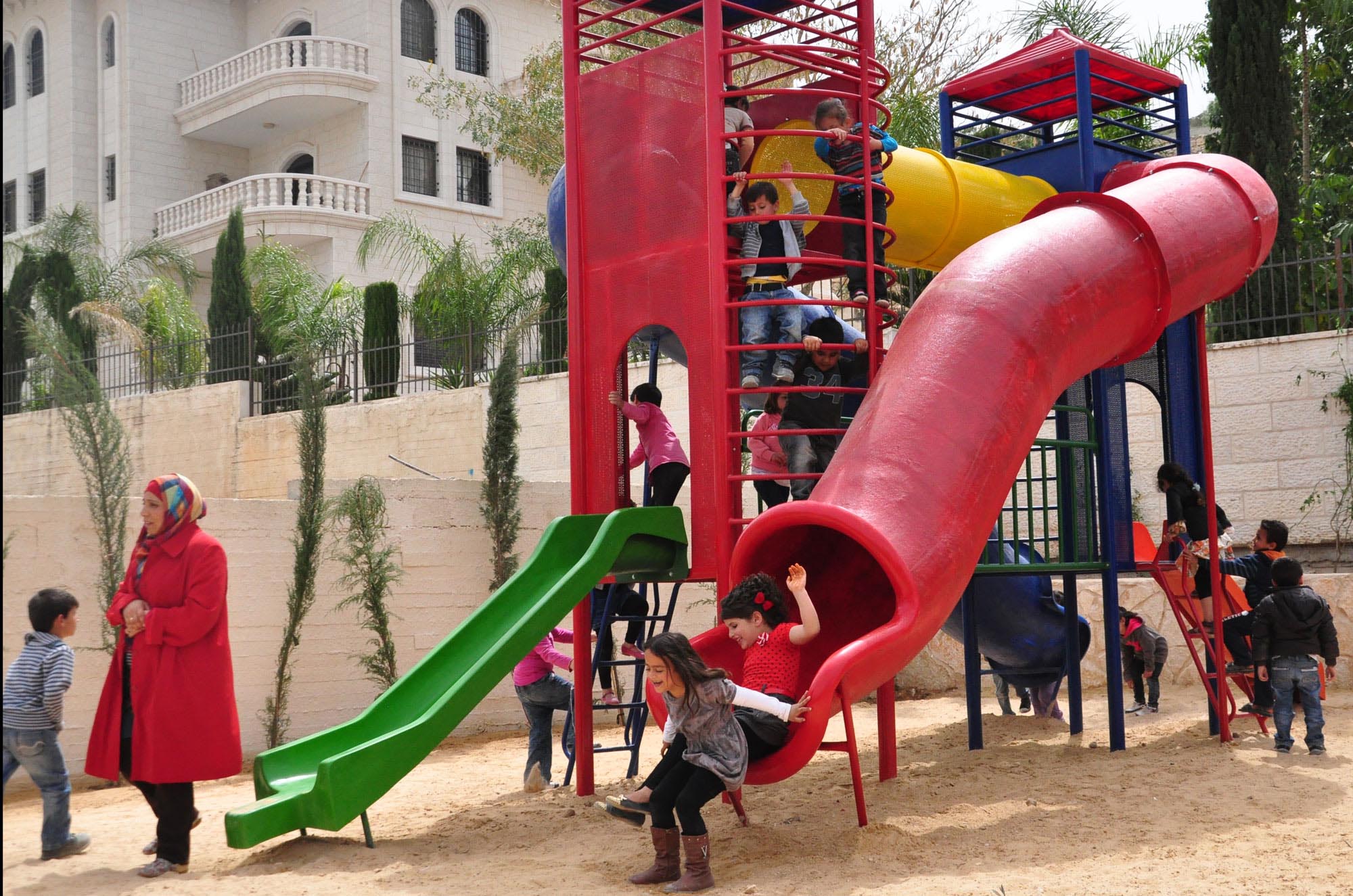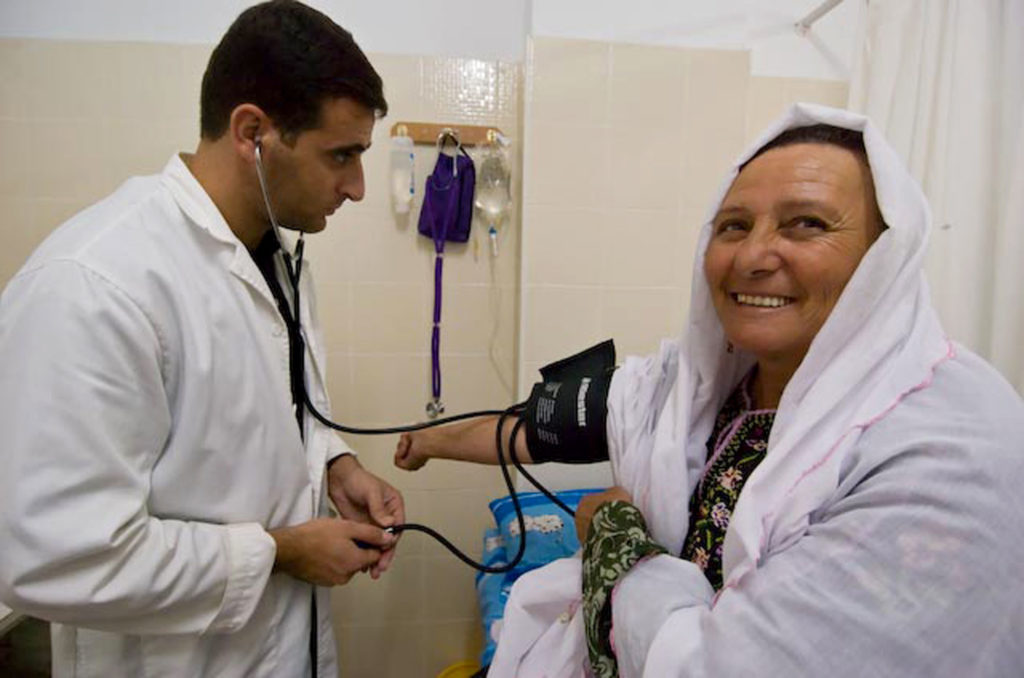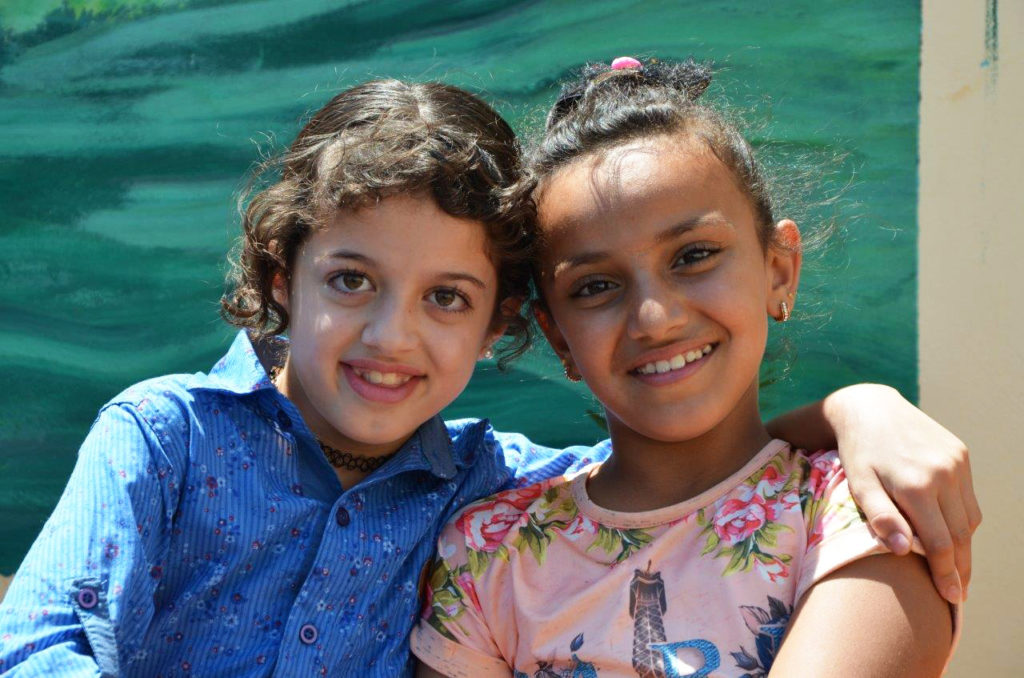Apr, 2013
Children growing up in the West Bank village of Ras Karkar had no safe place to play after they finished their homework or chores at home. They ended up playing in the streets or trash-filled fields.
In 2012, three adventurous boys, aged 4-6, decided to play in an unused storeroom near their homes. When they didn’t come home, their parents started searching for them with help from the neighbors. Soon the entire village joined the search. After several hours the little boys were found inside an abandoned commercial refrigerator.
The kids had crammed themselves inside. But the fridge door had locked them in, its door refusing to budge. They suffocated to death. The tragedy shook the entire population of the district of Ramallah.
Anera is building the parks, thanks to funding from Muna and Basem Hishmeh and the Bank of Palestine. The Hishmehs live in Florida but grew up in the West Bank city of Ramallah. Today their foundation contributes to improving the lives of underprivileged children both in the USA and the Palestinian territories. It was their vision for public parks in their homeland that helped turn a dream into a reality.
“Basem and I remembered the old days in the towns and villages when there was always a nice place to sit and place for the children to play,” said Muna. With urban sprawl and overcrowding over the years, the green spaces disappeared. “We wanted to bring them back.”
Anera has built three Al Bayyara parks in the past year. The first opened in Ramallah in 2012. “This year we have already built two parks, and are currently working on two more,” says Anera Program Manager Naser Qadous. “The opening of the parks in Ebeidiyeh and Ras Karkar were extra special because Muna and Basem Hishmeh were there with us to celebrate the opening.”
For Basem and Muna, the sight of families once again gathering in a peaceful open space was rewarding. “It is a labor of love for us and one smile from any of these children is all the thanks we need,” said Basem Hishmeh.
The park in Ras Karkar was dedicated to the three young boys: Muhammad, Omar and Mohammad, and their bereaved families. “It was an emotional and humbling experience for us all,” explained Naser.




